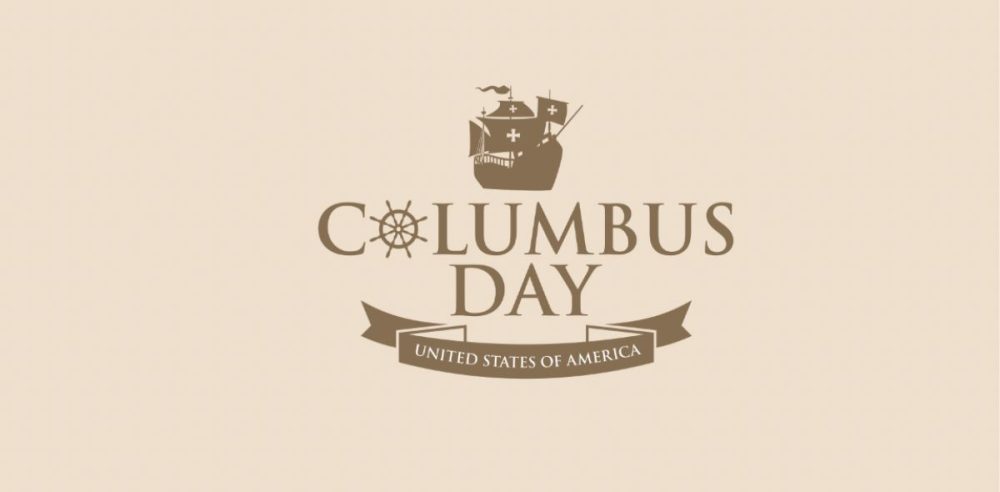Columbus Day, once a cherished American holiday, has become the subject of heated debate in recent years.
Critics, such as those from The Washington Post and similar outlets, argue that Christopher Columbus’s arrival in the Americas marked the beginning of a “genocide” against the Indians, citing the loss of life caused by European diseases and violence.
However, these accusations often fail to acknowledge a crucial part of the history: Columbus’s arrival in the New World also helped to bring an end to the widespread practice of child sacrifice, a horrifying custom deeply embedded in many pre-Columbian societies.
Before Columbus arrived in 1492, human sacrifice, especially of children, was rampant among Indian civilizations.
The Aztecs, one of the most notorious practitioners of these rites, performed ritual sacrifices on a massive scale. In one bloody instance, as many as 80,400 children and adults were sacrificed in a ritual to the Huitzilopochtli, the Aztec god of the sun and war, that lasted four days.
The scale of this brutality is difficult to fathom today.
The Aztecs believed that they had to supply their gods with human blood daily, and they frequently harvested hearts, often belonging to prisoners of war or enslaved people, to stock their sacrificial offerings, according to Encyclopedia Britannica.
Though The Washington Post frames Columbus’s arrival as a violent disruption, they fail to mention that the real end to the slaughter of these innocents only came with the introduction of Christianity to the New World.
By spreading Christian teachings, Columbus and the missionaries who followed him promoted the sanctity of life and directly challenged the justification for human sacrifice. Child sacrifice, which had been a staple of religious life in the Americas, was quickly dismantled under Christian influence. By the mid-1500s, these violent practices were outlawed under Spanish colonial rule.
The idea that Columbus initiated a genocide is misleading for another reason: he did not come with the intent to wipe out the Indian population.
As historian Carol Delaney has pointed out, Columbus believed he was carrying out a divine mission.
“His goal was to finance the crusade to reclaim Jerusalem after it had been taken by Muslims so Christ could come back and save the Christians,” Delaney said. “His intention was to find Asia and instead found the new world.”
Further, Columbus’s first words to the inhabitants of Hispaniola were said to be, “The monarchs of Castile have sent us not to subjugate you but to teach you the true religion.”
He wrote to the Pope numerous times requesting missionaries be sent to the land he discovered, and on his deathbed, he also established a fund for “liberating Jerusalem.”
The tragic deaths of many Indians were not caused by deliberate slaughter but by the spread of diseases like smallpox and measles, to which the Indians had no immunity.
These diseases ravaged the native population, but blaming Columbus for this would be akin to holding him responsible for something as uncontrollable as the spread of viruses — something today’s Americans understand more acutely than ever. It’s an unfortunate reality of first contact between previously isolated civilizations.
Meanwhile, the moral transformation that Columbus initiated is seldom acknowledged by mainstream media. The Dallas Morning News and The New York Times have embraced Indigenous Peoples’ Day, choosing to promote a narrative that ignores the darker side of life in pre-Columbian societies, especially the practice of child sacrifice.
Instead, they focus exclusively on the hardships faced by the Indians after European contact, without recognizing the salvation that Christianity brought to the New World.
The decline of child sacrifice in the Americas parallels prior Christian actions. Child sacrifice to the god Baal in the ancient Middle East ended with the spread of monotheism, both through Judaism and later Christianity.
Apart from this profound moral shift, Columbus achieved many other things worthy of celebration.
His voyages opened the Americas to European exploration and eventual settlement, setting the stage for the development of the modern Western Hemisphere. He navigated uncharted waters and introduced two previously disconnected worlds to each other, creating a path that would eventually lead to the growth of trade, ideas, and cultures that define the Americas today. Columbus’s achievements in navigation and exploration were monumental in their own right, laying the foundation for the age of exploration.
Columbus’s legacy should not be reduced to the crimes that modern critics claim he committed. His actions, whether directly or indirectly, brought about the end of some of the most brutal practices in human history, saving countless children from sacrificial death.
To ignore this part of his legacy is to distort history.
As more cities and states begin to phase out Columbus Day, it’s vital to remember why his life and legacy are worth celebrating.
Despite the criticisms, Columbus’s impact on the world was far more complex and transformative than his detractors would admit. He was not merely an explorer — he was a catalyst for change, a figure whose arrival in the Americas helped to extinguish the flames of ritual violence and barbarism.
Ultimately, Columbus’s story is one of Christendom triumphing over blood-soaked paganism, which is worth remembering.


